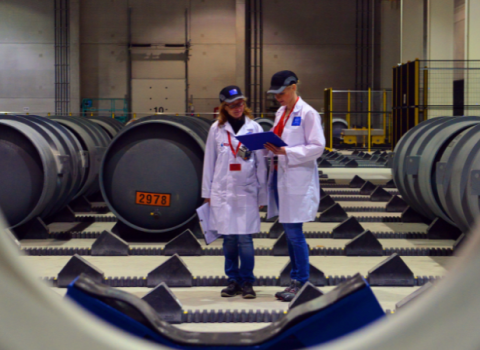
The study, announced this week at the Scottish Low Carbon Investment Conference, held in Edinburgh, will consider how potential carbon dioxide storage sites in depleted North Sea oil wells can be utilised, and the steps required to make this resource support the location of low carbon industries in Scotland.
If theory translates to fact, CCS will enable large-scale emitters of carbon, such as electricity generators, to capture CO2, compress it and then transport and store it underground or under the sea.
Lena Wilson, Chief Executive, Scottish Enterprise, said, “Leading companies, oil and gas heritage and enormous storage potential in our depleted oil and gas fields in the North Sea offer an opportunity to develop a globally competitive sector. This study will allow us to map out our existing strengths in infrastructure, assess offshore storage capacity and ascertain what level of investment will be required.”
Wilson added that the conclusions of the study will provide a sound basis for action to drive forward the development of Scotland’s CCS industry.
Scotland’s Energy Minister Jim Mather said the North Sea could store all industrial coal emissions for the next 200 years. “[This is] a capacity greater than Germany, the Netherlands and Denmark combined. The identification and development of appropriate infrastructure will be critical.”
Initial findings from the CCS Cluster Investment Plan study are expected to be published by the end of 2010.





 A unique international forum for public research organisations and companies to connect their external engagement with strategic interests around their R&D system.
A unique international forum for public research organisations and companies to connect their external engagement with strategic interests around their R&D system.